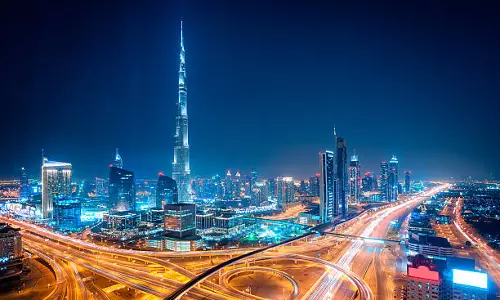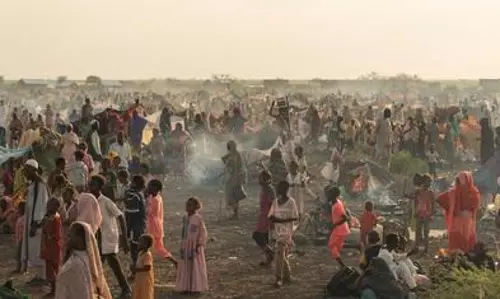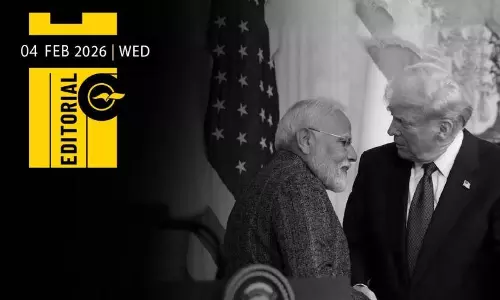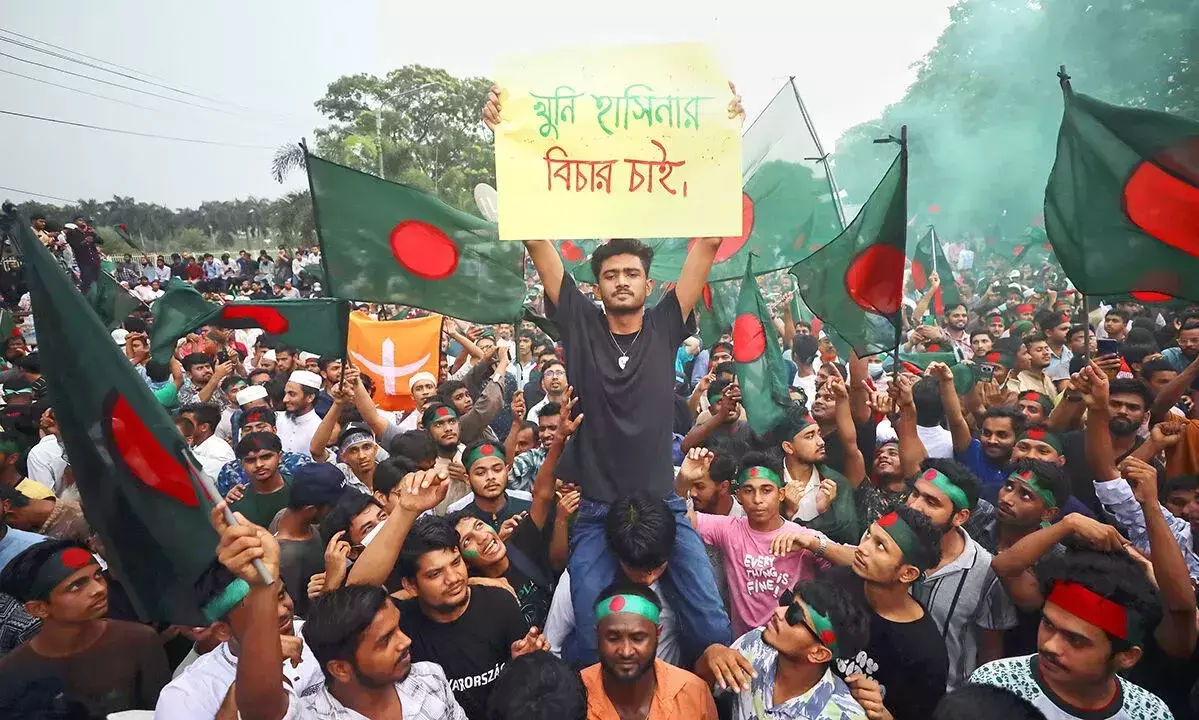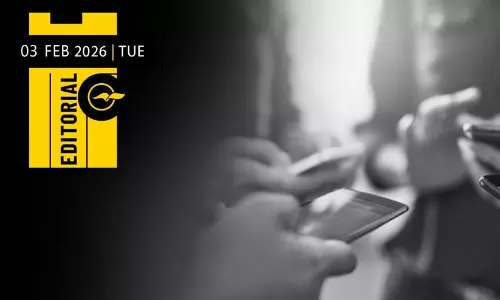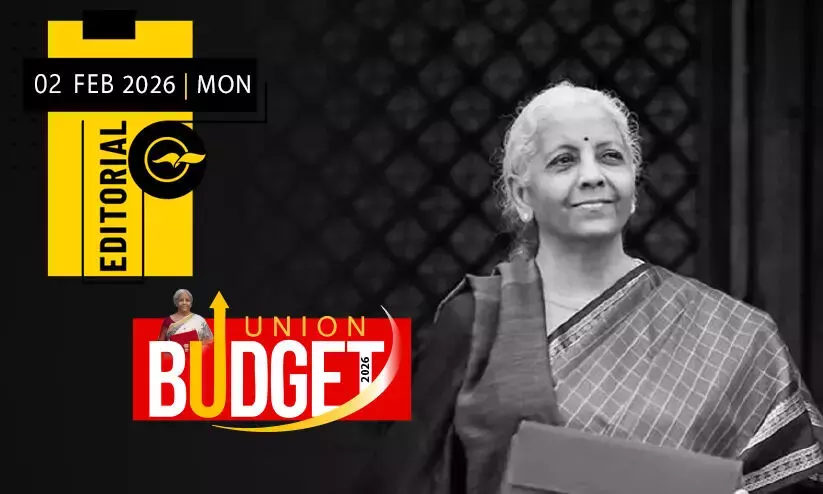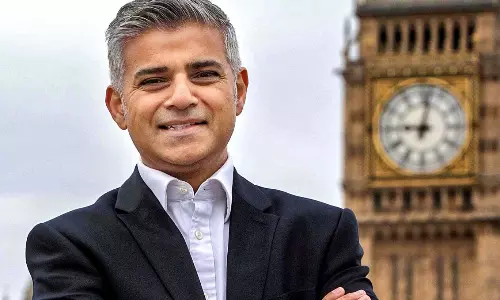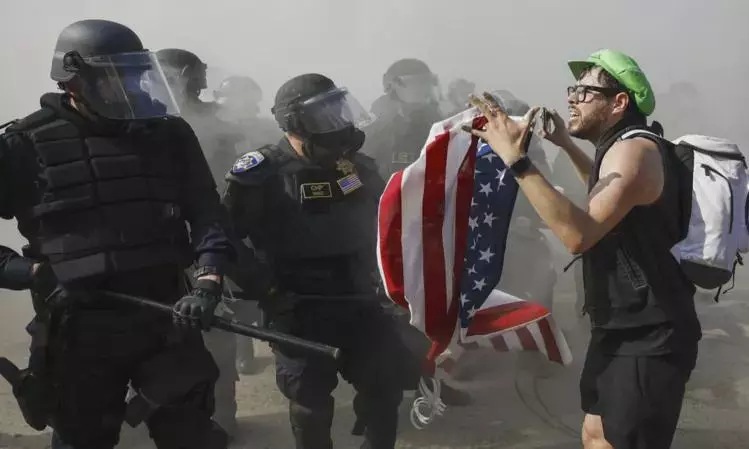
From protest to occupation: The dangerous precedent set in Los Angeles
text_fieldsThe phrase used by California Governor Gavin Newsom captures the gravity of the situation: “The federal government is now turning the military against American citizens.” Over the past week, that’s exactly what has unfolded in Los Angeles. The deployment of thousands of National Guard troops and active-duty Marines—without the state’s consent and in response to largely peaceful protests—marks a chilling new chapter in American authoritarianism.
The protests began after another aggressive Immigration and Customs Enforcement (ICE) operation swept through the city. Over 120 people were detained in daylight raids on restaurants, homes, and stores. These actions triggered a wave of outrage from immigrant communities and their allies. People marched not with weapons, but with placards and chants, expressing collective grief and indignation. The First Amendment was alive on the streets—until the federal government stomped on it in combat boots.
President Donald Trump’s administration responded not with dialogue, but domination. More than 2,000 National Guard members were deployed, with another 700 Marines following close behind. Trump claimed he was responding to a “rebellion” and protecting federal property. But what unfolded was not law enforcement—it was occupation.
Entire neighbourhoods were blanketed with troops. Protest zones were declared unlawful assemblies. Tear gas and rubber bullets were fired at civilians and journalists. People were detained, often without charge. The message was clear: dissent would be met with force.
Legally, the deployment rests on shaky ground. Trump has not formally invoked the Insurrection Act, which permits the use of federal troops under limited circumstances. Nor has the required proclamation been issued to disperse protesters. Yet troops arrived anyway—under a rarely used statute that legal scholars say has never been applied in this way. According to national security expert Elizabeth Goitein, “The conditions that would normally be present, and that should be present, for the president to deploy the military are simply not here.”
California has pushed back. Governor Newsom and Attorney General Rob Bonta filed a lawsuit calling the deployment unconstitutional and an abuse of federal authority. “Trump is behaving like a tyrant, not a president,” Newsom declared. Bonta added that the president is inflaming tensions, not easing them. Los Angeles Mayor Karen Bass put it plainly: “This is not needed.”
This federal overreach is more than a partisan clash—it represents a deeper crisis in American governance. It is a stress test for democracy itself.
This moment is not unique, but part of a longer pattern. As Ahmad Ibsais wrote for Al Jazeera, the militarised tools honed in America's overseas wars—surveillance, raids, indefinite detention—have gradually been repatriated. Military-grade equipment, once used in Baghdad and Kandahar, now floods local police departments. Legislation originally meant to target foreign extremists now sweeps up domestic dissenters.
During the so-called “War on Terror,” Congress passed the PATRIOT Act, expanded FISA surveillance, and enabled indefinite detention. These same tools now underpin ICE operations and domestic militarisation. As Ibsais noted, what began abroad always finds its way home.
And the erosion of norms is accelerating. In 1965, President Lyndon B. Johnson federalised the Alabama National Guard to protect civil rights marchers from Selma to Montgomery. That action, though controversial, was rooted in a moral imperative to protect protestors. In 2025, President Trump sent in the military not to defend civil rights, but to suppress their exercise.
Even if courts eventually rule the deployment illegal, the damage is already done. Troops are on the ground. Protesters have been assaulted. Journalists have been targeted. The rule of law is being rewritten not in courtrooms, but on city streets.
This is not only about Los Angeles. Trump has already warned that similar deployments could occur in other cities. He declared that any protests disrupting federal immigration operations would be “met with equal or greater force.” This is not a policy of public safety—it is a strategy of deterrence by fear.
As a lawyer and law professor, I teach and speak about checks and balances, federalism, and the Constitution. But Los Angeles has reminded us: these protections are only as strong as the people in power. When law becomes a weapon rather than a shield, democracy begins to unravel.
The Los Angeles crackdown may have started with ICE raids. But it has revealed something far more dangerous: a government willing to substitute legality with force, and dissent with suppression.
If this is the new normal, who will be next?
Faisal Kutty is a Toronto-based lawyer and regular contributor to The Toronto Star. His articles also appear in Newsweek, Aljazeera, Zeteo, and Middle East Eye. You can follow him on X @faisalkutty)








